Study Case
Expanding life, study and career projects of black elementary school girls
Research carried out by the organisation Tomara! Education and Culture, in March 2023
The GWGAB project had significant impacts on the lives of the participating black girls. The initiative contributed to broadening these teenagers’ future perspectives through a critical review of the past and the present, and the construction of a safe and welcoming environment, where they could express themselves freely and learn from other girls and women.
In this way, the project had a positive effect on the girls’ self-esteem and on their empowerment in the social context in which they live. This is due, in large part, to the warm connection between the black adult women who participated in the project and the teenagers, who were able to model themselves on examples of successful black women and imagine a future for themselves that transcends the limits imposed by racist and sexist stigmas, as revealed by the report of a participating student:
In order to better understand the impacts, the programme was analysed from 6 dimensions:
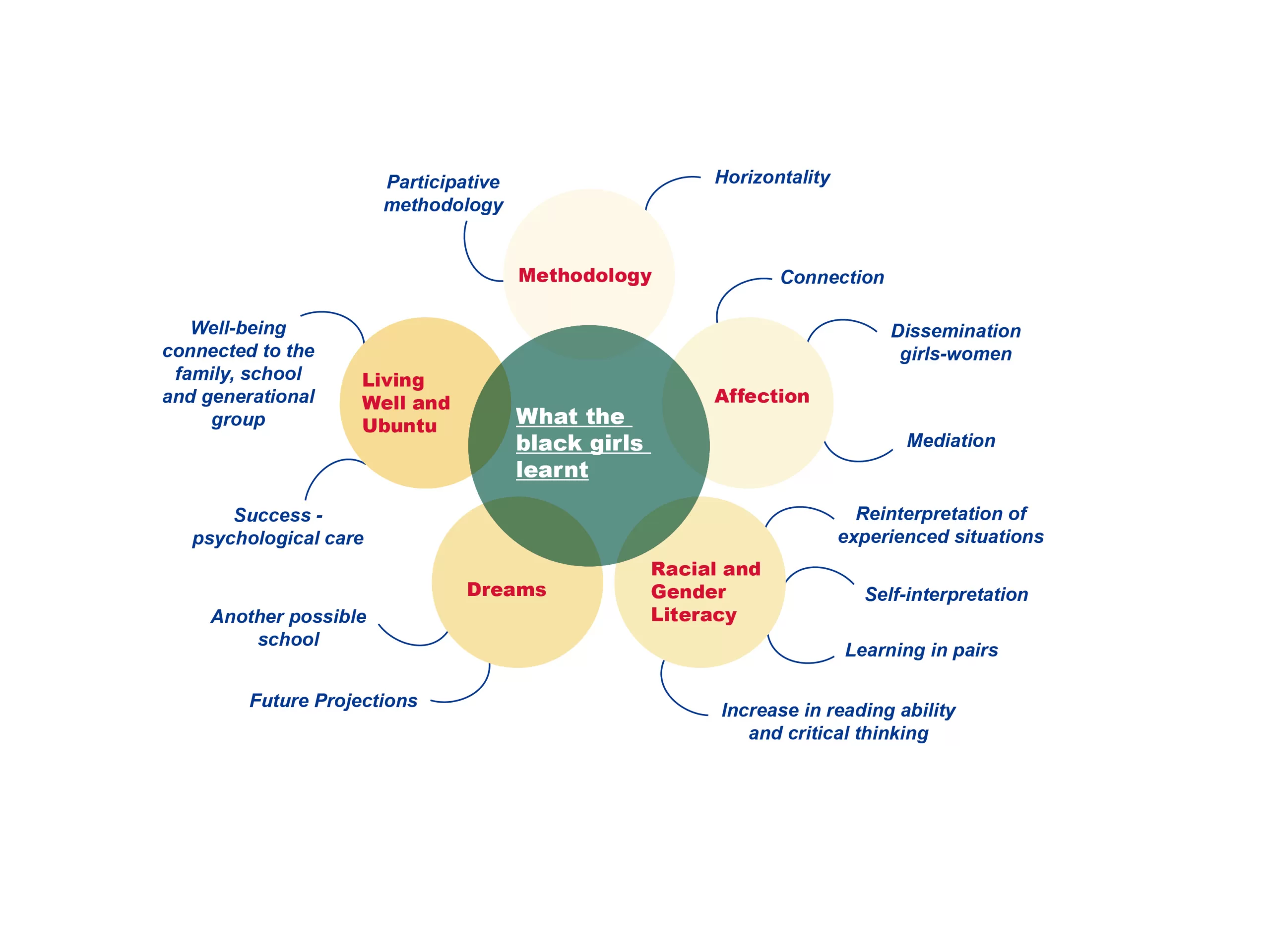
“Before, the perfect family for me would only be if a woman had a man at her side. Only then could she achieve something in life. But now, seeing the story of women who can go to the top without a man, I think otherwise. The programme brought about changes because here we talk about our colour, but also about women’s independence, so I don’t think I need a man to be independent, or that I will achieve something because I have a male by my side… I can do this on my own because I am a woman, so I think that has changed a lot.”
North-Northeast Coordinator
From the methodological point of view
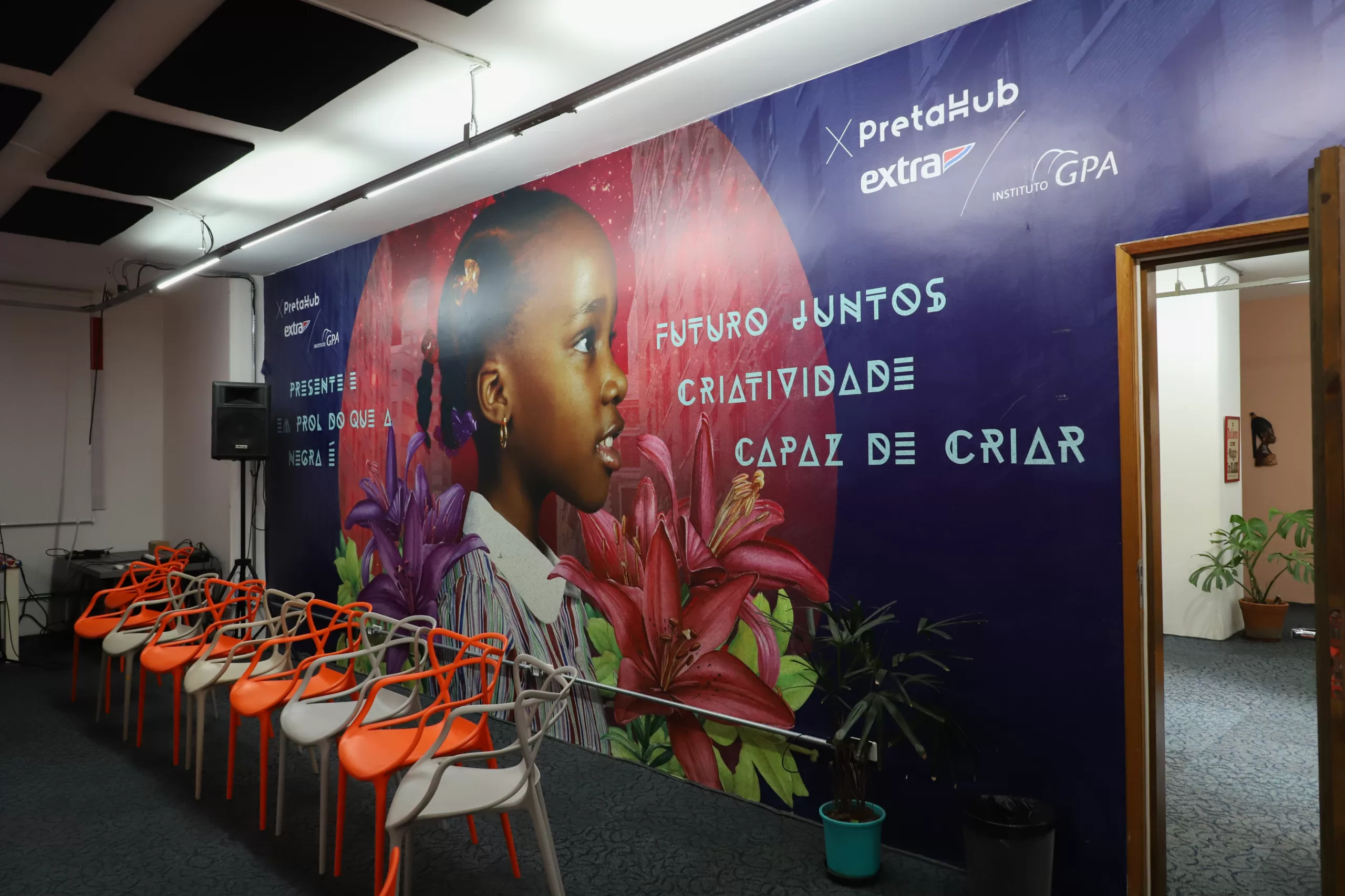
From a methodological point of view, the participating adolescents valued the participatory dynamics, the horizontality and representativeness present in the activities. This allowed them to have a voice and learn from the experiences and sharing of the black adult women who coordinated the projects. Experimenting with a participatory methodology, based on horizontality and trust, constituted a fundamental milestone in these girls’ experiences and reverberated inside and outside the school, by expanding the understanding of what it means to be a black woman in Brazilian society.
“We noticed that they are getting excited, and that’s exactly how we want them to see this. We established a friendly relationship with them. Most of the girls have already got my number and keep calling me. I look for topics to debate with them, that’s why we have to study and listen to other people, so that when advising them, we don’t disappoint them or lead them to giving up on things”).
South-Southeast Coordinator
As for the affection
“These are girls who arrive at school with discredited profiles, you know? Without seeing much hope for the future… Nothing far from what we experienced in our own stories. That’s why taking black women to school is a business that works very well, because those girls see themselves in us. We are very similar, physically, to them, we have stories very similar to theirs. And at some point in our lives, we were also discredited, without much hope”-
South-Southeast coordinator
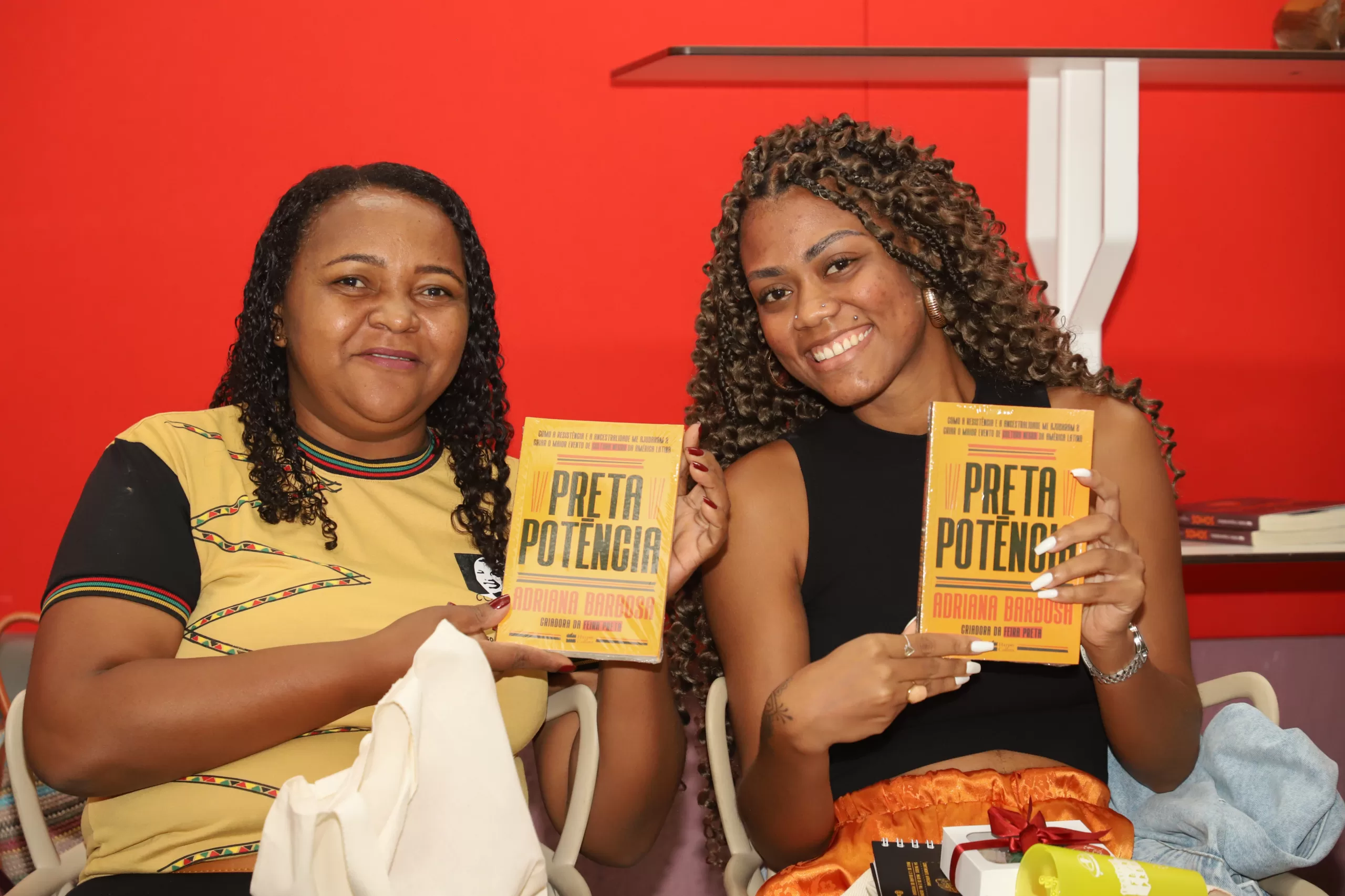
As for affection, in addition to the school routine, the project understands the importance of the connection between black adult women and adolescents to provide meaningful learning. This connection is mediated by the common racial and gender experience that determines the social reality of black women and girls in Brazil. The adult women served as inspiration for the teenagers by showing the possibility of building a future beyond the limits of the racist and sexist structures of Brazilian society. The process of positive mirroring of experiences impacted both girls and adult women, which led to a revisiting of trajectories and re-signification of achievements.
Regarding racial and gender literacy
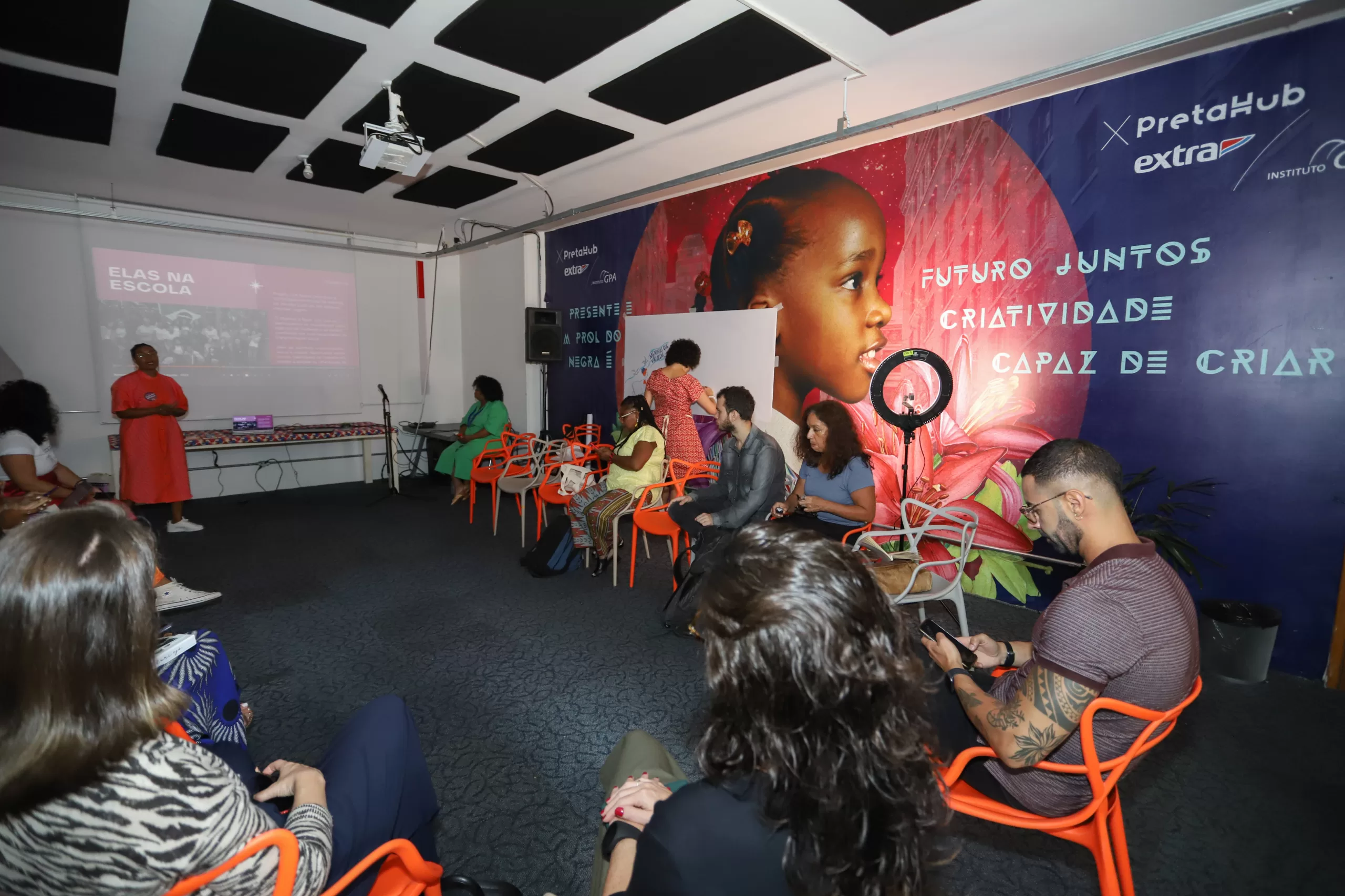
As for racial and gender literacy, the project provided a space for sharing social experiences and critical reflections. Participating black girls reported a lack of discussion of these issues at school. Through participatory methodologies and affective connections, the girls deepened their critical reading skills and understanding of social dynamics at school, family and community. For example, they challenged instances of racism and sexism, including in the school curriculum, and demanded greater discussion of African history, Afro-Brazilian contributions, and ethics and respect in relationships, including gender identity and sexuality. The girls’ feminist and anti-racist literacy was developed through life story exchanges and interactions with older black women, in many cases with recognition and renown in their fields. This process provided support against negative perceptions of their bodies and intellectual capacities.
“As I said, hearing from my own family that because a white person was born in the family, the family was cleaned, that the child is prettier for having straight hair of a lighter colour. So, for me, I thought it was normal when I was little as I used to hear that a lot, but now I can defend my colour and my hair”
North-Northeast Student
About dreams
“I think there should be more interesting classes, like robotics, music, financial education classes, which one really needs… Classes that students feel they want to take, instead of feeling forced to, like what currently happens at school”
South-Southeast Student
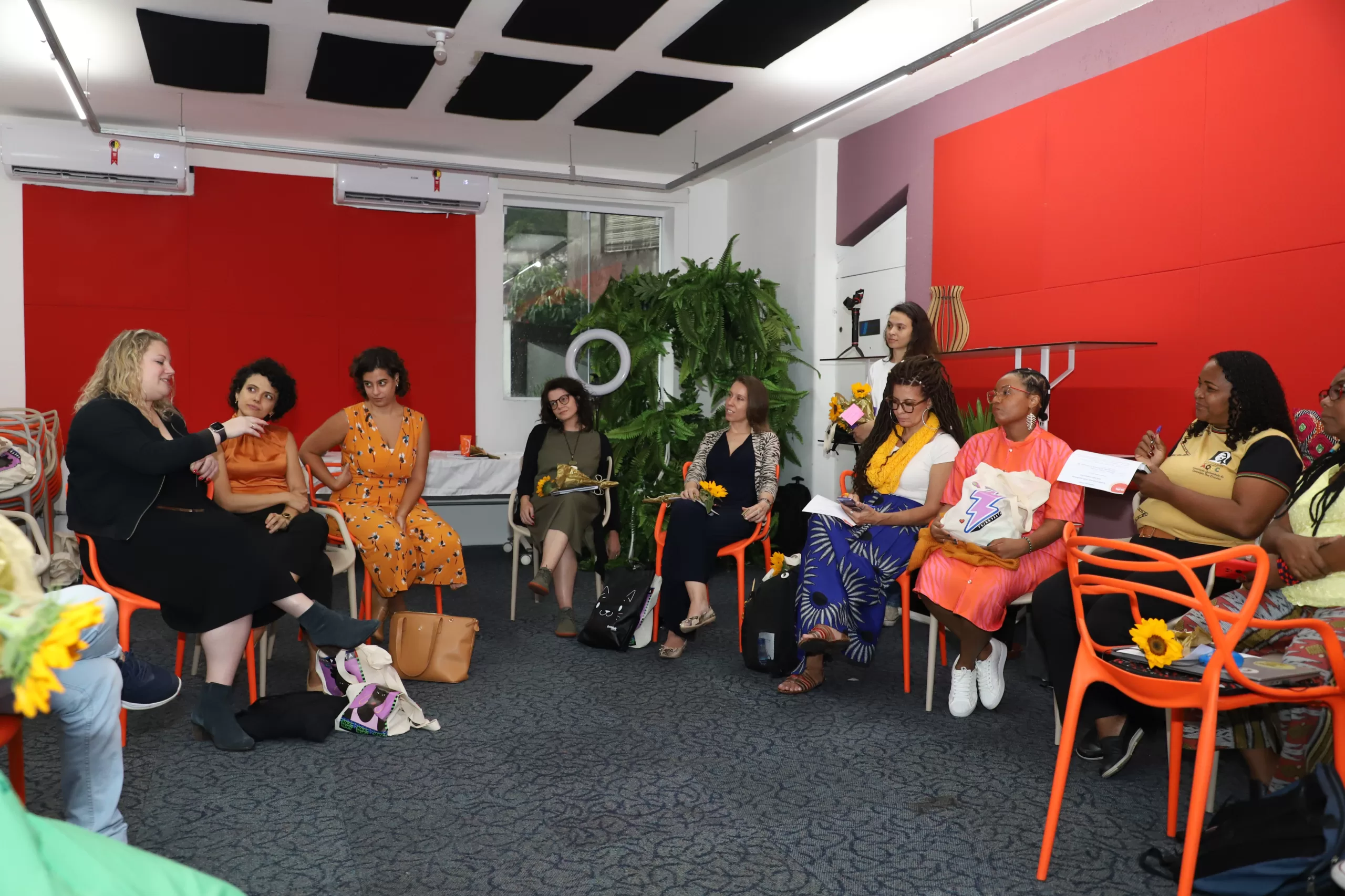
When it comes to black girls’ dreams, the pedagogical interaction in the project influenced the perception of black girls in GWGAB in relation to their life possibilities. The dimension of the dream was explored to expand its horizons and imagine an ideal school, with educational resources and pleasant, participatory classes. The girls expressed varied professional projects, and many did not mention starting a family as a goal. Participation in the project helped broaden their perspectives and believe in the realisation of their dreams through the empowerment and visibility of black women in positions symbolically limited by racist and sexist culture.
Lastly, regarding the dimension of Bem-Viver – Ubuntu
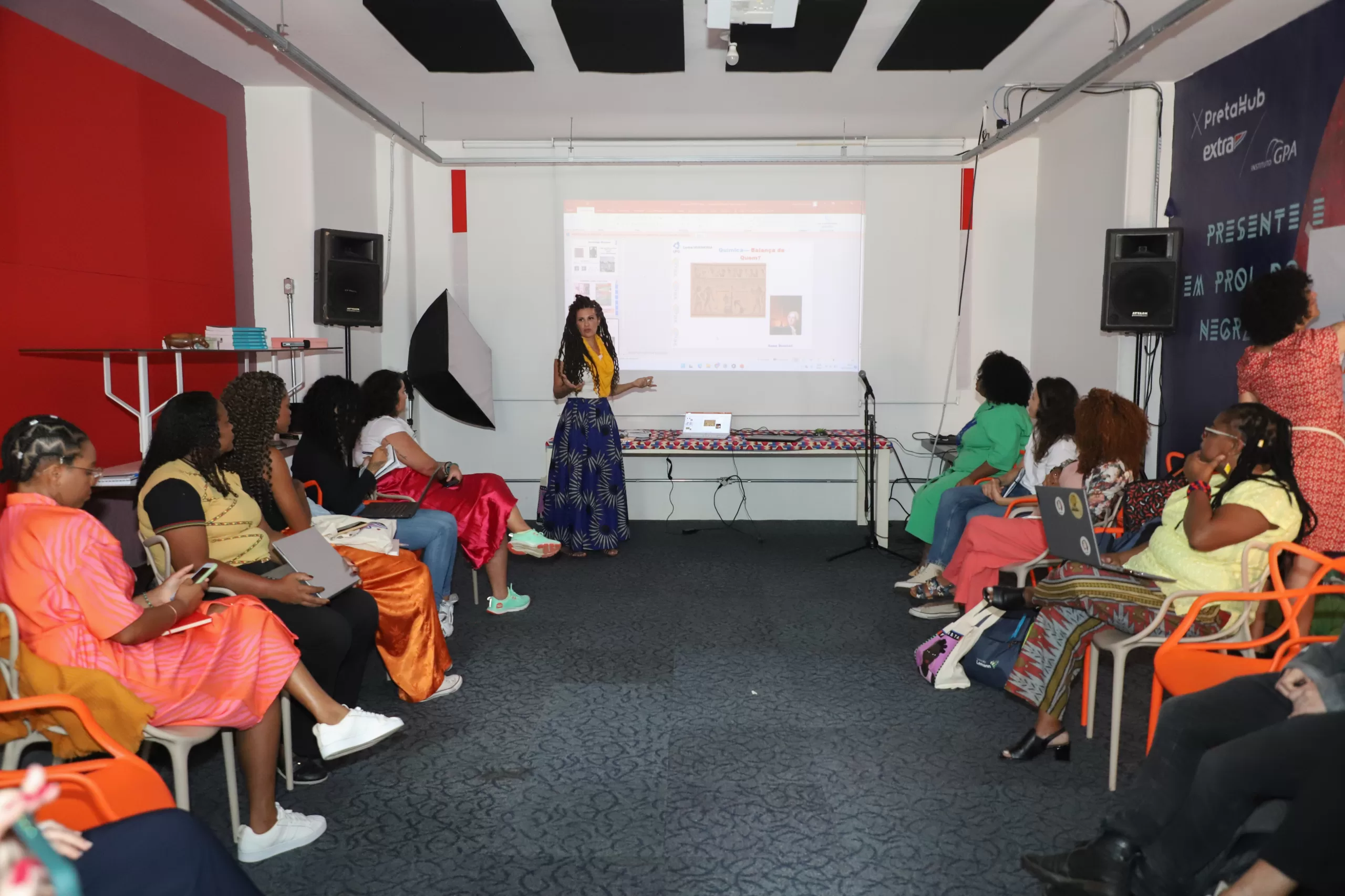
Finally, regarding the Bem Viver – Ubuntu dimension, the dreams and concerns expressed by black adolescents in their future projections go beyond socially shared notions of success and teach us to expand our perspective on what constitutes a fulfilling life. They project a situation in which personal, professional, and material accomplishments combine to produce a happy life. Their wishes and concerns address topics such as sexuality, psychological health, balanced romantic relationships, and overcoming racism and sexism. This concept of a good life is not individualistic, but shared with peers, family, community and social groups. Girls’ future aspirations are linked to improving the quality of life for their generation and beyond. Many also require that the knowledge and experiences gained in the project be expanded to other students, including boys. The girls’ projections refer to the African philosophy of ubuntu, which emphasises the interconnection of individuals in a community.
Finally, despite not being the focus of the project, the S4P platform sought to provoke coordinators and participants to reflect on the importance of the English language in the daily lives of adolescents. It was possible to verify that most of the participants have little familiarity with English, despite their contact through music, movies, games and social media. The accumulated learning points to the urgent need to qualify the teaching of English in public education and to the importance of broadening students’ cultural horizons through access to a second language.
“I’m 23 years old and I’m going to finish college. I graduated in psychology, and I want to be a psychologist. I chose this profession because I think it suits me. I’m going to be in schools a lot, looking more at them, because I want to. Our generation has a few more problems, let’s say, with psychological issues such as anxiety and depression. I want the next generation to have more psychologists to pay more attention to teenagers and children.”
South-Southeast Student
Final Considerations
The project significantly impacted the people participating. It went beyond the rhetoric of individual meritocracy and recognised the need for real development opportunities with a focus on racial equity. Investment in mobilising dreams and expanding future projects must be accompanied by long-term planning that guarantees the necessary resources to make those dreams come true. Projects focused on empowering black girls must be able to overcome the symbolic and material limits imposed by racism and sexism to create a future of possibilities for black girls.